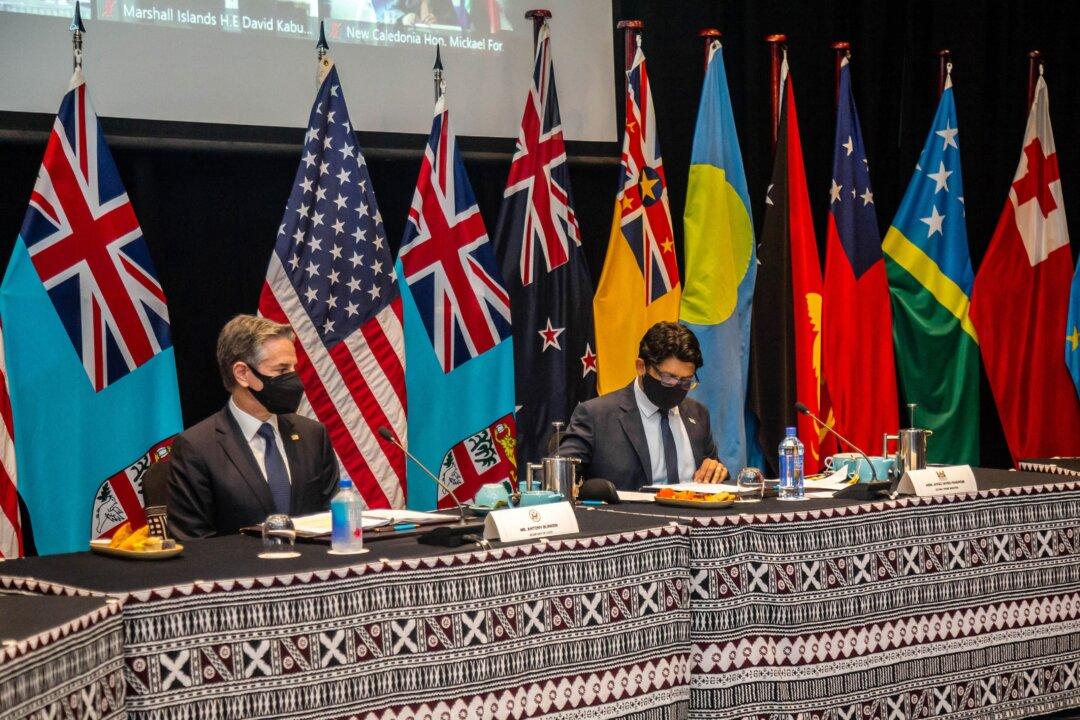NADI, Fiji—The United States will open an embassy in the Solomon Islands, Secretary of State Antony Blinken said on Saturday as he committed more diplomatic and security resources into the Pacific as a counter to the Chinese regime’s drive for greater influence.
Blinken, in Fiji for virtual summit of the Pacific Islands Forum (PIF) of regional leaders, heard their complaints that they had long been overlooked by bigger nations.





